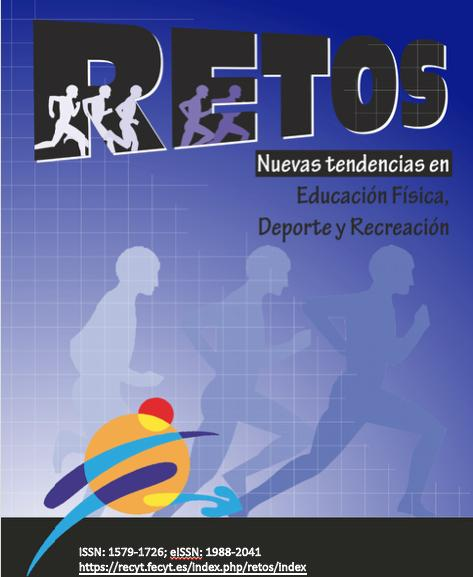The effect of (RONDO) exercises teaching methods of differentiated instruction, gradual and fixed activities on the shooting skill of students in Futsal
DOI:
https://doi.org/10.47197/retos.v68.115877Keywords:
RONDO exercises, differentiated instruction, gradual and fixed activitiesAbstract
Objective: To develop RONDO exercises using the differential learning methods, progressive activities, and fixed activities, to teach the futsal shooting skill to the research sample, and identify the effect of RONDO exercises using the differential learning methods, progressive activities, and fixed activities, on learning the futsal shooting skill to the research sample.
Research methodology: The researchers used a three-group experimental design: two experimental groups and a control group, equivalent in all factors affecting the dependent variable with the exception of one factor: exposure to the independent variable. The researchers intentionally identified the research community from first-year students at the College of Physical Education and Sports Sciences at Mustansiriyah University, numbering (142) students representing the research community, which consists of four classrooms: the first (34), the second (36), the third (34), and the fourth (38). The research sample was randomly selected from 60 students from classrooms (1, 2, and 3), with 20 students for the first, second, and control groups.
Result: The results of the pre- and post-tests showed improvement in shooting for the experimental and control groups. This, the researchers believe, is due to the scientific and efficient teaching methods at the college in shooting.
Conclusions: Students who learned through RANDO exercises based on fixed activities significantly improved their shooting accuracy compared to those who learned through progressive activities, as the fixed repetitions helped consolidate correct technique, and students who used RANDO exercises based on fixed activities gained greater confidence in their ability to score, as a result of the mastery achieved through repeated practice of the same activities.
References
Al-Dasouki ,M. M. M.( 2021); The Effect of Rondo in Small Spaces on Learning Passing and Receiving Skills with the Foot for Goalkeepers in Football Academies, Published Research, Journal of the Faculty of Physical Education, Benha University.
Al-Halisi ,M. H.( 2023); The Effect of Using the Differentiated Instruction Strategy on Academic Achievement in the English Language Curriculum for Sixth-Grade Primary School Students in Makkah Al-Mukarramah, Umm Al-Qura University.
Al-Tuwairiqi ,H. M.( 2013); Differentiated Instruction and Its Impact on Motivation, Thinking, and Aca-demic Achievement, Jeddah, Khwarazm Scientific.
Hammad M.I. ( 1994); New Developments in the Physical, Skill, and Tactical Preparation of Soccer Players; Cairo, Dar Al-Fikr Al-Arabi.
Ibrahim ,A. S.( 2022), The Effect of Rondo Exercises in Different Forms and Spaces on Developing the Level of Complex Skill Performance and the Flexibility of Offensive Tactical Thinking in Ad-vanced Soccer Players, Master's Thesis, University of Anbar, College of Physical Education and Sports Sciences.
Karim ,S. A .(2024); The Effect of Rondo Weight Training on Some Biomotor Abilities, Basic Skills, and Possession of Second Division Soccer Players, PhD Thesis, College of Physical Education and Sports Sciences, University of Karbala.
Abdel Salam , M., M. and Fouad, S. (2025). The effectiveness of Rondo game exercises during a training program on developing the complex skill performance of football players under 19 years old, published research, Scientific Journal of Physical Education and Sports, Volume 24, Issue 1.
Hamid and et al. (2024). Badour Badri; The effect of Rondo exercises in developing some basic skills for futsal players under the age of 18 years, published research, Journal of Sports Education Studies and Research, Volume 4, Issue 34.
Downloads
Published
How to Cite
Issue
Section
License
Copyright (c) 2025 Ahmed Abdullah Abdulkareem Al Saedi, Abdulrazzaq Jebur Abed Al-Majidi, Ismael Abd Zaid Ashour Al-Kareemawi, Rafia Saleh Fathi Al-Kubaisi

This work is licensed under a Creative Commons Attribution-NonCommercial-NoDerivatives 4.0 International License.
Authors who publish with this journal agree to the following terms:
- Authors retain copyright and ensure the magazine the right to be the first publication of the work as licensed under a Creative Commons Attribution License that allows others to share the work with an acknowledgment of authorship of the work and the initial publication in this magazine.
- Authors can establish separate additional agreements for non-exclusive distribution of the version of the work published in the journal (eg, to an institutional repository or publish it in a book), with an acknowledgment of its initial publication in this journal.
- Is allowed and authors are encouraged to disseminate their work electronically (eg, in institutional repositories or on their own website) prior to and during the submission process, as it can lead to productive exchanges, as well as to a subpoena more Early and more of published work (See The Effect of Open Access) (in English).
This journal provides immediate open access to its content (BOAI, http://legacy.earlham.edu/~peters/fos/boaifaq.htm#openaccess) on the principle that making research freely available to the public supports a greater global exchange of knowledge. The authors may download the papers from the journal website, or will be provided with the PDF version of the article via e-mail.


